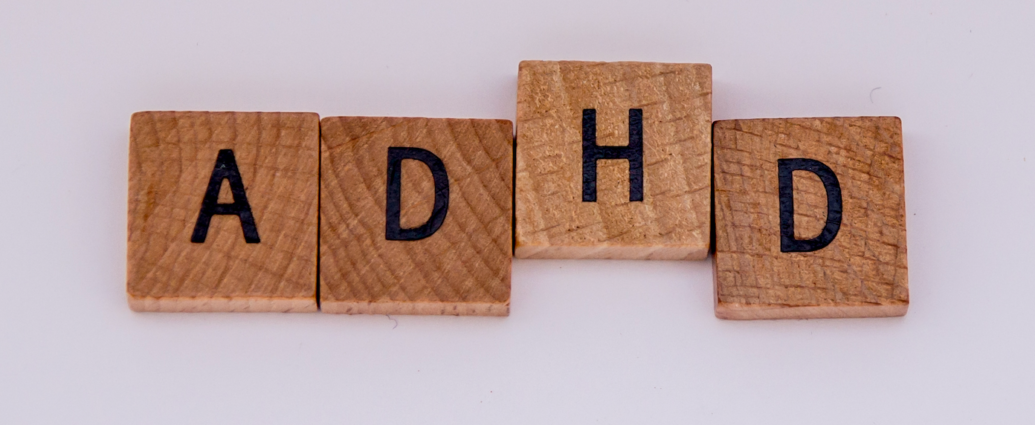Aaliyah Fooks
October marks ADHD awareness month. I was diagnosed with ADHD in the summer. At just twenty, this came in the middle of my undergraduate studies. I was in the middle of finishing my second year, part-way through a research internship, and trying to balance part-time work, full-time study, and a relationship.
Although my diagnosis was not that long ago, I am still learning about myself in this new context. I want to share my story to allow others to seek help and treatment for whatever issues they may be facing, not just ADHD.
Before my diagnosis, I spent my whole life thinking that there was something fundamentally wrong with me. I could never comprehend why I did not have any friends or was so annoying, chatty, fidgety, and bossy. As a young teenager, my ‘unique personality’ left me very lonely, with little to no close friendships that did not include some form of indirect bullying.

Anxiety about all of the above only made things worse – I constantly anguished about being different and lonely, primarily as a teen – I worked hard to come off as ‘normal’. I always feared that the rug would be pulled out from underneath me at any moment, and my carefully curated persona would be removed like a mask.
Confusion and a lack of understanding of ADHD in women and girls led me to write off my symptoms for many years, attributing my difficulties to anxiety and depression.
A Lifetime of Clues
For me understanding my ADHD has been a bit of a process. It was like a switch turning on and shedding so much light on myself.
As a child, I always knew that I was different. I was called “fidgety”, and family members referred to me as “away with the fairies”. Subconsciously, I think I was always aware it was something more. In primary school, I was called a “chatterbox”, a “blabbermouth” who would blurt out answers, and a “know-it-all”. I remember my report card was always: “Aaliyah is a pleasure to teach, but she needs to chat less”. But since my work was always finished and often correct, I never got in trouble for my chattiness.
These were qualities that, as a child, I associated with my favourite character, Hermione Granger, and continue to see as a strength.
University
Even though I constantly felt like a failure, no one around me saw me for that. “But you’re so put together!” I’d hear. If only they knew the excruciating effort, it took for me to appear normal.
My life only started to ‘fall apart’ once I started university. The first of the ‘dominoes’ was a culture shock. I began my degree in September 2020. This was a massive step up, and because of the pandemic, there was no structure. My social insecurities and anxieties suddenly emerged, and government-bound isolation made friendships extremely difficult. Like most first-year university students, I was struggling with time management.
First, I sought assistance through my university’s disability service. ADHD came up by chance. We discussed my mental health and any previous treatment or diagnosis I had received. In one of the forms I had filled out when I was applying to university, I spoke about my previous attempt to be diagnosed with ADHD. The team member then recommended that I complete a non-diagnostic online quiz that the team uses to refer students to proper methods of diagnosis. I remember completing the quiz that evening with my partner, looking at him once I had gotten the results of ADHD combined type and saying, “what do we do now?”.
What Do We Do Now?
Google-ing, and a lot of it. There are droves of articles just like this online that I read and immediately identified with the image that these authors drew from their own experiences of the little girl who:
- Has difficulty sitting still
- Has trouble concentrating or focusing
- Has difficulty staying organised
- Is chronically forgetful
- Struggles with tasks incompletion
- Struggles to relax and unwind as their mind is constantly on the go
- Is a high achiever but struggles with perfectionism
- Feels overwhelmed and shy at a social gathering but can end up talking over people as you are nervous
- Drifts during conversations unless you’re the one speaking or it’s a topic you find very interesting
- Struggles with friendships because social rules seem complicated
- Had so much energy and liked to be busy – but later in life, you are just exhausted and burning out
I couldn’t believe there was a name for everything I was feeling and experiencing
This explained so much – every symptom was another finger on my hand, another tick off the list. I couldn’t believe there was a name for everything I was feeling and experiencing, let alone medication and dedicated therapies.
Doctors, Doctors, Doctors
When I decided to begin the diagnosis process, I decided to tell some of my close friends and family about what I was doing. The question that was asked most frequently, not just by friends and family members but also by doctors, was “why now?”. A lot of the time, I would answer that I want to know and understand my brain and myself better.
on some level, I was ashamed
But I think I knew what the outcome of this would be, and I skirted around the issue of an ADHD diagnosis because, on some level, I was ashamed. I had always been an intelligent, high-achieving child that my family didn’t have to worry about. Here I was telling them that maybe they should have been worried. Perhaps they should have paid closer attention to the independent child who would sit and read for hours.
When talking to my psychiatrist, one of the things we spoke about was the question of “why now”. One of the most illuminating factors in my ADHD journey was higher education and the difference in the structure that it brings. And he assured me that this was a common catalyst for people of a similar age to me to realise that they might need help.
A day I will never forget is 22nd June 2022, roughly two weeks after my sit-down conversation with the psychiatrist, I received a mammoth document. The final sentence of that document will stay with me for the rest of my life:
“In summary, Ms Fooks has a diagnosis of Attention Deficit Hyperactivity Disorder (ADHD).”
My first instinct was to call my partner, who had been by my side throughout this journey. I remember he picked up the phone; he didn’t say anything. I exhaled nearly in tears and told him, “I have ADHD”.
Understanding Aaliyah
The more information I read, the more I understood. But with this understanding came anger. I could not help but think: “Why was this missed?”. I often asked my partner if he thought that if I had been diagnosed as a child my mental health would not require as much work as it currently does. Had I been done a disservice? How did all these responsible adults in my life, including family members who were teachers, miss such a crucial part of what made up me? I wondered if my life would have been drastically different if I had known. Would I have struggled to make friendships as much? Would I have spent so many years confused, conflicted, and depressed because I felt I was missing something?
I didn’t understand anything about my life until this point in many aspects
My partner lifted the curtain of anger that immediately followed my diagnosis. Although at the time I did not want to hear it, he told me exactly what I needed to hear at that moment: “Love, you can’t change the past. You can’t say for certain if you had known that would have changed anything. You need to focus on what you can do and what you can change. Look at everything that you have achieved despite everything.”
For me, this is not just about my mental health but also about understanding myself and being kind to my inner child. Throughout this process, I placed a lot of stress on my inner child because I didn’t understand why. I didn’t understand anything about my life until this point in many aspects.
ADHD Thus Far
My diagnosis has permitted me to be kinder to myself. It has allowed me to structure my life and degree to work for me. It would be wrong of me to say that this was an easy journey, it wasn’t, and it isn’t. If anything, this is an ongoing process and a very emotional one. But thanks to a vibrant online community of women with ADHD, and the unconditional support of my partner, I feel understood, seen, and part of a community for possibly the first time in my life.
These are their accounts:
Featured image courtesy of Practical Cures on Flickr. No changes have been made to this image. Image license found here.

